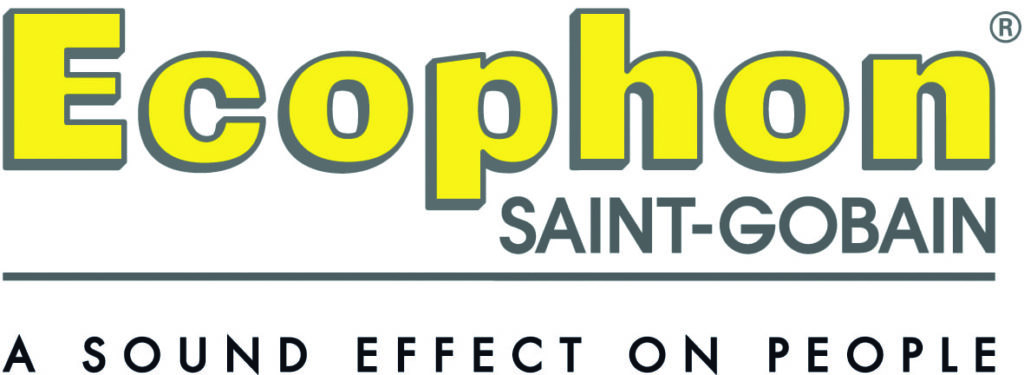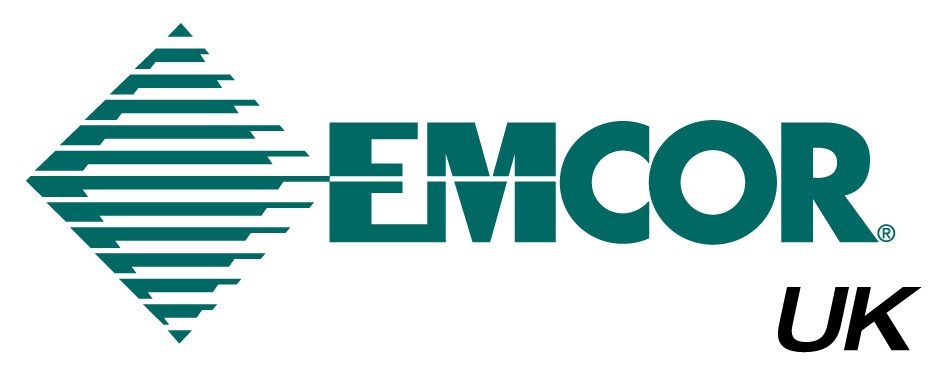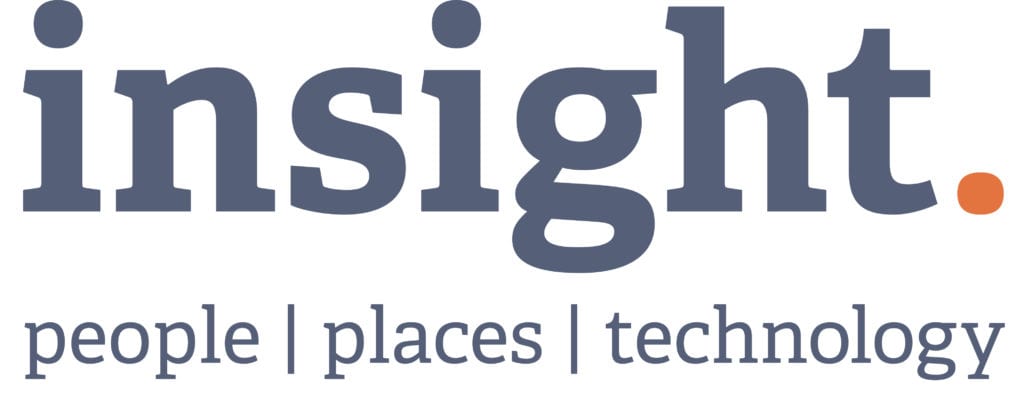Workplace Trends Research Spring Summit #WTRSS
Wednesday 25 March 2020, 09:00 – 17:00, + Drinks Social
Hallam Conference Centre, London W1W 6JJ
*Update re Coronavirus, posted 21 March 2020*
We have been in touch with all registered delegates this past week and can confirm that, particularly following the government’s call to close hospitality and other venues, we have reluctantly decided to postpone this event.
We spent some time looking at the possibility of moving the event entirely on-line, but so much of Workplace Trends is about face to face engagement we felt we owed it to our attendees and speakers, to postpone to a date when everyone can take part as was originally intended.
We will continue to review matters as the current situation develops and will advise a replacement date as soon as possible.
We’re delighted to present the very best of the latest applied research into work and the workplace at our Spring Summit.
Presentations were selected by a blind peer review by our moderators, Nicola Gillen (Cushman and Wakefield) and Nigel Oseland (Workplace Unlimited) and the resulting programme forms a fascinating, informative and sociable day, unlike any other that you’ll find on the conference circuit.
See below for details of the full sessions and to download the agenda.
With thanks to our sponsors
And our media partners
Attend in Person, or Virtually!
It’s great to be there on the day, but if it’s a trip you just can’t manage, you can attend virtually through our live stream. You’ll be able to see presenters and their slides clearly on your screen. You’ll also be able to take part and comment in the feed, and pose questions to the speakers. And if the time doesn’t work for you, watch the recording afterwards.
Virtual Ticket holders can also upgrade to an in-person ticket at any time (subject to availability). Importantly, as our last event sold out very early on, Virtual ticket holders will be given first option to upgrade when the event reaches 75% capacity.
Sessions:
A future workplace informed by millennial and post-millennial insights
Fiona Duggan, FiD, and Oliver Moore, Design Engine Architects
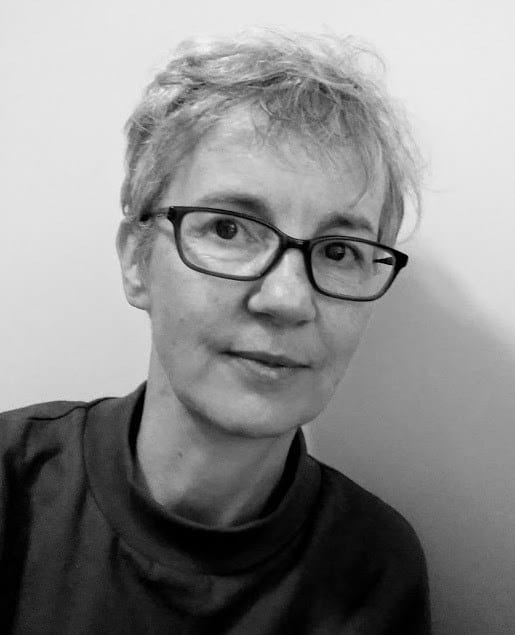
While there is much research investigating issues and trends affecting the current workplace and predicting its future shape, little work to date has been done in trying to understand more clearly the expectations of young people entering the workplace for the first time. In a bid to make their voices heard in the property industry, we’ve been:
1. Exploring directly with millennials (born 1981-1996, 22-37 years old) who’ve entered the workplace within the last 2 years, what their experience has been across a number of different sectors.
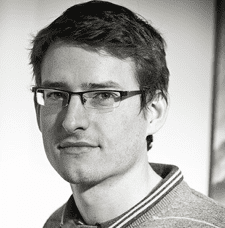
2. Working directly with post-millennials (born 1997-2012, 9-21 years old), also known as generation Z, who are currently progressing through a range of learning environments, what their expectations are for environments that support their learning, working and living.
In sharing the insights gained, our hope is to give voice to the aspirations of millennials and post-millennials as they make the transition from the world of education to work and to draw attention to the transformational learning environments informing their expectations.
Fiona Duggan is founding director of FiD, a London-based consultancy set up in 2006. Using a combined background in architecture and organisational psychology, Fiona works at the place where users and buildings meet, seeking ways in which the design and use of space can support academic and/or organisational change. Over the past 33 years she has worked in teaching, research and consultancy roles across more than 200 organisations and institutions. She presents and writes about the relationship between users and space.
Oliver Moore is a Senior Associate at award-winning architects Design Engine. Over the last ten years he has worked extensively on the delivery of a range of projects across the educational sector for universities and independent schools. From masterplanning campuses, to refurbishing existing buildings, to new build sustainable low-energy facilities, creating high quality spaces for use in learning and study is an area of continued focus. Oliver has also previously worked internationally for design practices Johnson Pilton Walker in Australia and Wilkinson Eyre Architects in London, specialising in heritage and cultural buildings.
Facility & Workplace Experience
Sjoerd Memelink, Iris de Been & Bote Scholtens, TwynstraGudde
TwynstraGudde has developed a new method to research the facility & workplace experience amongst more than 250 respondents in the Netherlands. Whereas most research so far is focused on data, this research focuses on the needs, drivers and values of end-users in the office environment. The results give insight into what people intrinsically want and allows Real Estate and Workplace Services organisations to proactively develop their working environment according to those needs.
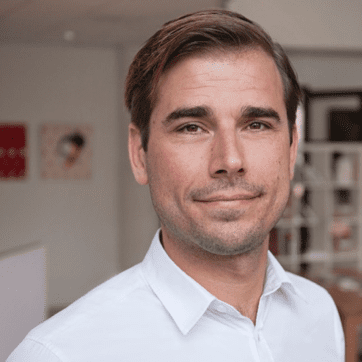
Sjoerd Memelink is partner and workplace consultant at TwynstraGudde specialized in Real Estate and Workplace strategies. With a background in real estate development, he creates successful solutions for end-users by translating the F&W Experience into inspiring new ideas and concepts.
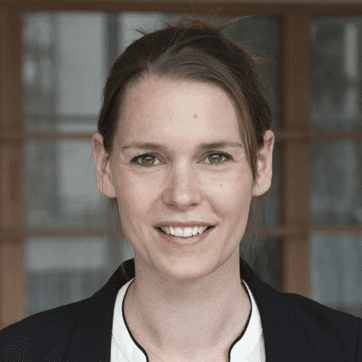
Iris de Been is a consultant at TwynstraGudde with a background in cognitive and environmental psychology. In her work, she strives to creating a perfect match between the (office) environment and the users.
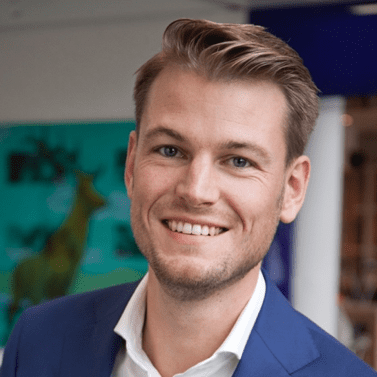
Bote Scholtens is a consultant at TwynstraGudde specialising in Facility Management. In his assignments, the end-user always forms the starting point. He is curious on how to give the end-user a stronger voice in the Facility & Workplace sector and therefore initiated the F&W Experience research to gather more knowledge about this topic.
How to catalyse your workplace for growth
Bertie van Wyk, Herman Miller Insight Group
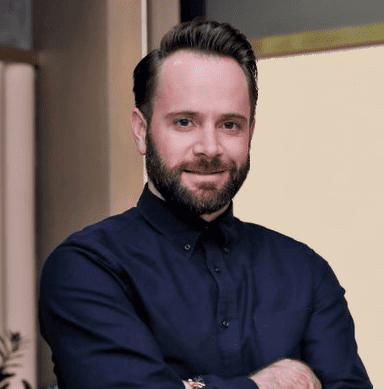
As part of our ongoing investigation into the connections between people, work, and the workplace, we conducted an experiment with 13 organisations around the world. To do this, we partnered with Leesman, a leading independent global benchmarking service.
Our partnership allowed us to measure and validate our Living Office research by comparing it to Leesman’s data from over 340,000 people working in 2,649 offices in 69 countries — the largest collection of workplace effectiveness data in the world.
This vast pool of research shows that when it comes to creating workplaces that are primed for organisational growth, only unique, personalised, research-based environments will do.
Bertie van Wyk is a critical thinking Workplace Specialist with a quick grasp of emerging trends and changing business processes. He is a tenacious performer with demonstrated competency in innovative strategies, continuous improvement and client focused solutions. Through his understanding of humancentric design and workplace development, he equips organisations and individuals with the knowledge and skills to become more productive, healthy and connected in work.
Rethinking Emotional Intelligence in the Workplace
Edward Finch, Independent Workplace Commentator

In our two-year study on the emotionally intelligent workspace we adopted a key premise: that emotional intelligence was not defined in terms of an individual’s emotional capability, but rather the space between themselves and others. How was emotional intelligence conveyed, transformed and received? Instead of the more familiar idea of intelligence as the ability to acquire knowledge, we considered the inanimate ‘intelligence’ that allows us to make sense of our surroundings.
The study examined the mediating role of the office environment as a leveraging tool capable of enhancing the emotional intelligence of individuals and groups. This approach resonates with the ‘social model’ of disability whereby people are disabled by barriers in society, not by their impairment or difference. Similarly, our unhealthy preoccupation with individual emotional shortcomings often cloud the inhibiting or enhancing effect of the physical work environment. Our study involved extensive analysis of work in neuroscience, psychology, linguistics and evolutionary anthropology. This was followed up by architectural design workshops in Italy, Spain and Australia. The eventual aim was to create a framework that could be used to capture emotional intelligence in workspaces.
Edward Finch is a freelance author and outspoken advocate of emotionally intelligent buildings. He obtained his PhD from the University of Reading (School of Construction Management) in 1989 and was Professor in Facilities Management at Salford University (2008-2011). He acted as editor-in-chief of the peer-reviewed journal Facilities for 15 years.
Decision Making, Dark Rooms and Moomins
Sinead O’Toole, Sheffield Hallam University
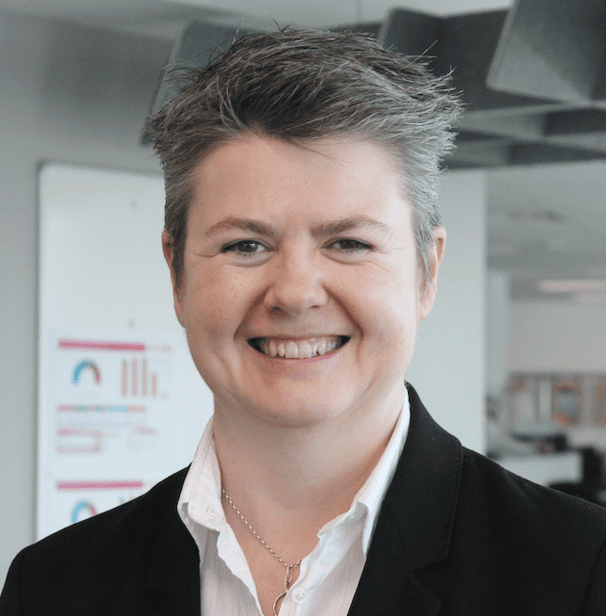
My presentation will be what I hope is an entertaining and slightly irreverent review of some of the research that has been done on three areas which I feel are poorly understood but could really make a difference to how we design our workplaces: the psychology of decision making, understanding introvert/extrovert differences, and how to make consultation meaningful for everyone involved.
In doing so I will draw on my work on developing the Engage toolkit, how this has worked in practice, and how it has helped senior colleagues in my organisation to understand what they need, and how they can make better informed decisions about their workplaces.
I will also describe my research visit to two universities in Finland earlier this year, and how I have found inspiration and new learning there, which I will share; including what we should all learn from Moomins.
Sinead O’Toole spent 20 years in financial services, primarily in London, with a career that has included roles in banking operations, move management, project and change management. Having made the leap ‘up north’, Sinead joined Sheffield Hallam University in 2011 as part of the Estates team in the Facilities Directorate, quickly becoming a central figure in the university’s work on learning spaces. Having completed her MBA in FM in 2016 with a dissertation topic of academic workspace, Sinead’s motivation and passion has always been around changing work and learning places for the better, with a particular focus on people and engagement. Sinead is currently leading on the implementation of Sheffield Hallam University’s new workplace policy and engaging with colleagues on culture change, in readiness for new workplaces as part of the university’s campus masterplan.
The New Inclusivity: Neurodiversity and Workplace Inclusion
Kay Sargent and Julie Lecoq, HOK (remote presentation)
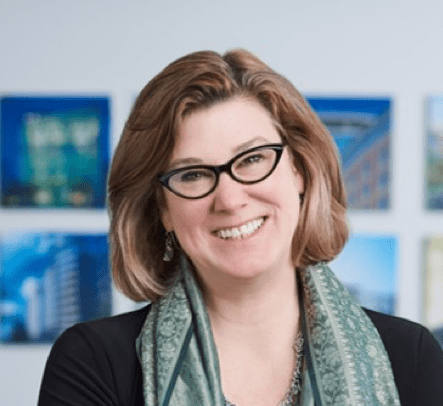
We are living in a time of increased numbers and awareness about individuals with neuro-sensitives and special needs, such as ADHD. In fact, 1 in 8 people are considered neurodiverse, but fewer than 50% know it. But these individuals can be high energy, out of the box thinkers, excel in a crisis, and be bold problem solvers.
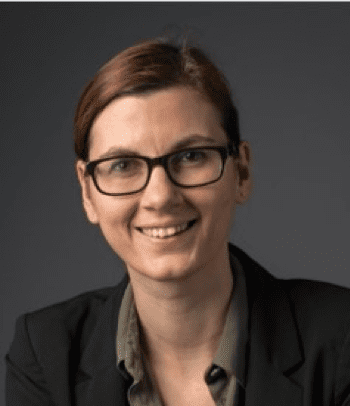
Not only is designing to be inclusive the right thing to do, there is a compelling business case for it as well. This session will investigate the various aspects of neurodiversity and explore how to create spaces that are more physically and culturally inclusive for people with a wide spectrum of neurological conditions to allow them to thrive.
Kay Sargent: With more than 34 years of experience, Kay is a recognized expert on workplace design and strategy issues. She is an award-winning designer who has worked with several Fortune 500 companies to optimize their global real estate portfolios and create innovative work environments. As director of HOK’s WorkPlace team, a practice that supports organizations undertaking multiple projects in various locations, Kay is responsible for helping clients redefine how, when and where their people work, working in tandem to support a holistic design approach that integrates an organization’s people, processes and technology.
Julie LeCoq: Bringing over five years’ experience, Julie has influenced the design of working and learning environments, as well as helping organisations to unlock their true potential. Julie has an incredible passion for the impact of the environment on behaviours and is an advocate for diversity and inclusion. She has successfully influenced and managed change across a variety of sectors in the UK and overseas, from Higher Education institutions to large, global blue-chip firms, especially in the Financial and Pharmaceutical sector.
Communicative Spaces. A new way to measure workplace effectiveness in hospital wards & co-working spaces
Rositsa Pachilova, brainybirdz
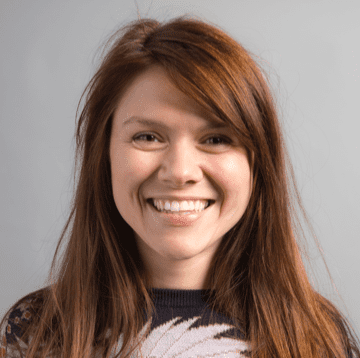
This talk will be based on a research study that has led to the development of a new metric, the Spaces for Communication Index (SCi), that measures space effectiveness in the form of maximising communication opportunities. SCi can be applied to both hospital wards and co-working spaces where work patterns are more dynamic and those who work there require a high degree of sociability and community to perform at their best and maximise outcome variables such as care quality and innovation.
The presentation introduces an objective method that can be used during the design stages of workplaces where communication is of high importance. The index can help architects and planners to define the location of functional spaces to design a layout that is effective and supports better performance.
Rositsa Pachilova is an architect by training and recently finished her PhD at UCL where she investigated how hospital ward layouts influenced work processes and communication patterns of healthcare providers and how this affected the quality of care provided to patients. Before commencing with her doctorate, she completed an MSc in Space Syntax: Architecture and Cities at UCL and worked as a workplace consultant in London. Rositsa joined brainybirdz in 2019 to help them apply scientific thinking to workplace design.
Contact Centres: A revolution waiting to happen
Jo Upward, Platform Group Ltd
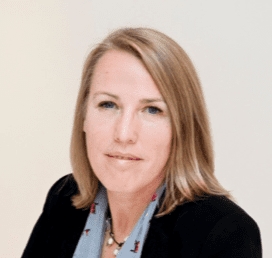
The world of customer service is rapidly changing – technological, social and economic drivers are converging to challenge the traditional model of running contact centres. Jo Upward will explore some of those disrupters and proffer some suggestions on how organisations can respond to get ahead of the game.
This presentation considers the many technological changes that have had an impact on contact centres over the past few years. From the growth of multi-channel customer access to big data and analytics. It looks at how artificial intelligence and the internet of things will fundamentally shift the nature of service calls and how technological changes will also drive the wellbeing experience of contact staff.
Jo will explore how social changes will drive changes in contact centre design and operation and at how social networking brings an ever-increasing expectation of personalisation and real-time responses. The discussion will look at the influences of economic and commercial factors and at how customer service is no longer an operation issue but rather a part of the marketing mix.
Finally, Jo will look at the design revolution that needs to take place in contact centres and at what these new environments might look like.
Jo Upward is Managing Director at Platform, an experiential design company. Platform work with customers to get to the heart of their customers through engaging digital, environmental and strategic communications and experiences. Leading the way in innovation since 1992, their clients include some of the best known brands globally including Vodafone, Accenture, Rolls Royce, BT, Tag Heuer and Sky.
Jo joined Platform in August 2012 from BT bringing with her a wealth of expertise, knowledge and a desire to drive excellence for the customer. Her experience ranges from multinational corporates such as BT and Orange to working with public bodies including Ofcom and the European Union.
Menopause: The last workplace wellbeing taboo
Kate Usher, Second Phase
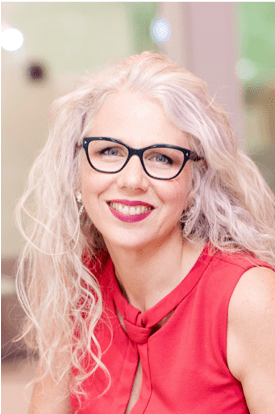
Menopause is the last workplace taboo. Half of the workforce will experience a Menopause, and because no woman lives in a vacuum, the other half will experience it indirectly.
The longevity, continuity, breadth and intensity of impact makes it the most significant wellbeing issue that organisations need to consider. Yet it remains the missing piece of most organisation’s strategy.
The CIPD (UK) is reporting that women aged 50 – 55 are the fastest growing demographic in the UK workforce. Menopause is set to be at the centre of the inclusive wellbeing agenda simply because of the breadth of impact on the workforce and the ever-increasing numbers of women within it.
Kate Usher is a Menopause and Relationships Coach. She works with women and those they interact with, to enable them to create a positive narrative and an empathetic environment. She helps equip them to have open and informed conversations at home and in the workplace, to manage their symptoms and to look forward beyond this period into the second phase of their womanhood. Her book ‘Your Second Phase’ is due for publication in March 2020.
Prior to this Kate was a highly accomplished change leader with over 20 years’ experience of leading organisational transformation projects and coaching personal change. She was a Global Change Manager for FTSE 100 companies, managing major corporate transformation projects across multiple disciplines and continents.
Property ownership in a flexible world
Rob Harris, Ramidus
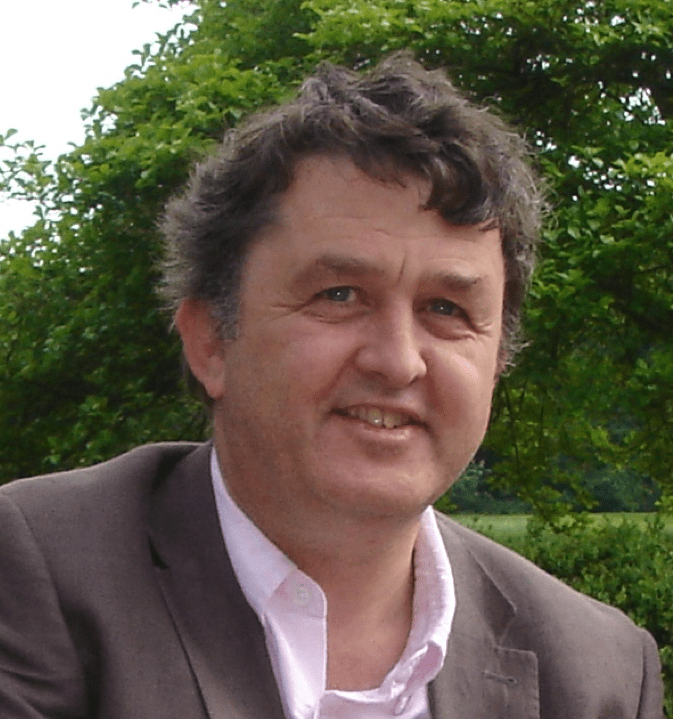
This paper presents the findings of a study recently undertaken on behalf of the Investment Property Forum. The membership of the IPF comprises, largely, owners of commercial property. Faced with the rapid growth of flexible space operators and a fundamental disruption to the traditional owner-occupier model, the IPF asked Rob Harris to investigate how owners were responding to the changes. Based on 30 in-depth interviews with owners, the presentation will outline a series of interesting and challenging findings for owners of office buildings, reflecting fundamental changes in the occupation of space, with implications for how we plan and manage workplaces.
Rob Harris is principal of Ramidus Consulting Limited. He has over 30 years’ experience specialising in property market research. Prior to setting up Ramidus, Rob worked for Interior Services Group, Stanhope Properties, Hillier Parker (now CBRE) and DEGW. Much of Rob’s work involves looking to the future and seeking to understand the implications of social, economic and technological change for the design, provision and management of real estate.
Conference Moderators and Abstract Review Team
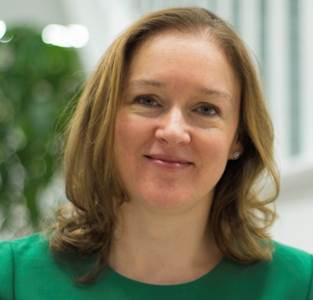
Nicola Gillen, Cushman & Wakefield, is an architect with a business degree. This provides her with a complementary perspective on the physical and business environments, through understanding the complex and often contradictory interests of the owner, users, designers and managers of buildings.

Nigel Oseland is a workplace strategist, change manager, environmental psychologist, researcher, international speaker and published author. He draws on his psychology background and his own research to advise occupiers on how to redefine their workstyles and rethink their workplace to create working environments that enhance individual and organisational performance and deliver maximum value. Nigel is the programme advisor for the Workplace Trends series of conferences.
Registration
Registration for delegates is open now. Virtual tickets are also available for those not able to make the journey to London.
Virtual attendance:
Take part and view the sessions via a live-stream + receive videos of each conference session after the event.
Virtual rate: £195 + VAT
Our venue
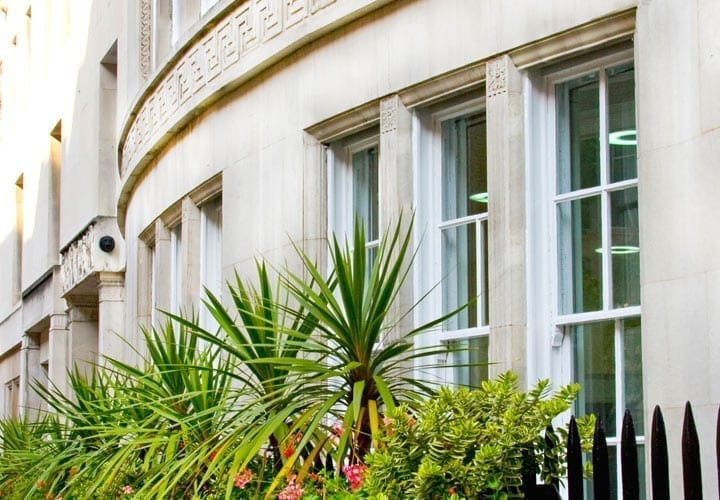
The Hallam Conference Centre is a Grade ll listed building which was purpose built by the General Medical Council as their headquarters and to host their events. In 2009 it was converted into a facility more widely available for meetings and conferences.
Situated in the West End, adjacent to the BBC and the Langham hotel building is a haven of tranquillity and excellence having been the recipient of numerous customer service standard awards.
The venue is easily accessible by public transport, and also a short walk from Euston, Marylebone and Kings Cross stations. For more location details click here.
Read our venue’s policy regarding Covid-19 here.
Drinks Social

As with all our events, everyone is welcomed to an informal Drinks Social immediately after the conference close. Here, the discussion continues, and you can catch up with old friends and make new connections.




